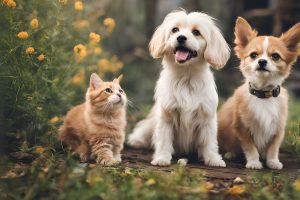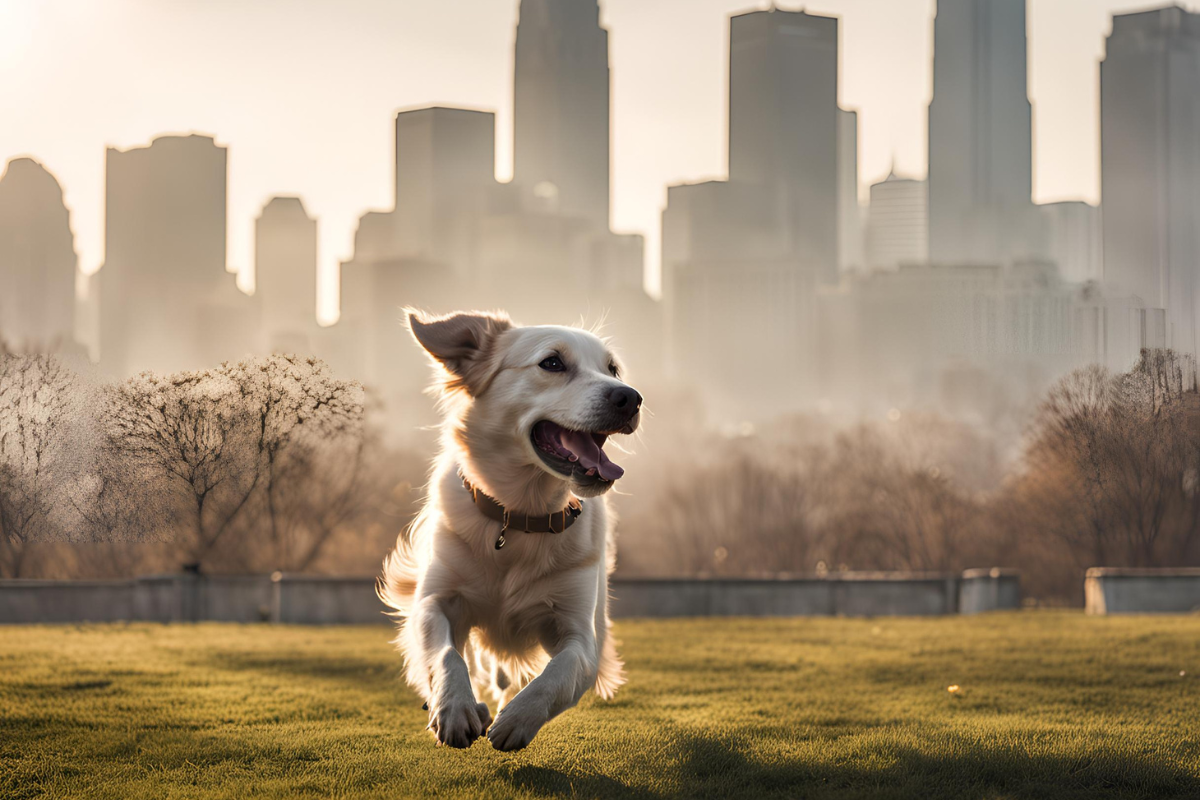

Air pollution is one major concern worldwide, and more than humans, pets are exposed to the harmful effects of polluted air. Mostly pets in the urban environments have fallen victims of polluted air as not many people are keen on noticing them suffering. It would be essential to recognize the signs that might ensure your pet is healthy and generally very safe.
Table of Contents


Pets are generally more vulnerable to air pollution compared to humans. Their small body size and high breathing rates make them inhale more pollutants per unit of body weight. Some short-nosed breeds of dogs, such as pugs and bulldogs, are more prone to being harmed due to the anatomy of their respiratory system. Cats can be equally susceptible due to Persian breeds.
Protect your pets from air pollution—because their health depends on the air they breathe.
Knowing what the symptoms of pollution-related health issues are in your pets can save a lot. Here are key signs to watch for:
Persistent coughing or wheezing may mean that your pet is having trouble breathing due to polluted air. For example, coughing or wheezing may notably occur in dogs while exercising and in cats while playing.
Rapid breathing, panting excessively, or visible difficulty in drawing breath are serious signs that your pet may be suffering from respiratory distress. This is especially alarming if it occurs when they are resting.
Unusual nasal discharge, which can be clear, white, yellow, or green, may indicate that your pet’s respiratory system is irritated by pollutants. This is often coupled with sneezing.
This can be manifesting in red, watery eyes, or sometimes by constant rubbing of the eyes. Pets may also have a discharge from their eyes, which could be clear or colored.
If your pet appears excessively tired, lethargic, or uninterested in activities they otherwise enjoy, that might be an indicator that pollution is affecting the overall health of your pet.
Inability or a sudden loss of appetite can be an indication of health problems due to exposure to polluted air. Animals live by smell, and if it is polluted, their appetite will be affected.
Changes in behavior such as becoming irritable, anxious, or hiding can indicate that your pet feels uncomfortable due to pollution. Animals can become clingy, or on the other hand, become distant.
Dirty air can also cause the skin of your pet to become dry, itchy, or rashes. Pets can scratch, lick, or even bite more than usual if they are uncomfortable.
To prevent your pets from getting harmful effects of dirty air, preventing measures must be taken:
1. Limit Outdoor Time
Limit time spent outdoors with a pet when pollution is high; try to limit walks, and not to walk during peak pollution hours, usually in the morning and evening.
2. Safe Indoor Environment
Make sure your house is well ventilated and use air purifiers to keep indoor air fresh. Clean the house often to prevent re-deposition of dust and indoor pollutant build-up.
3. Hydration
Keep your pets adequately hydrated to help their bodies clear toxins they may have inhaled. Fresh clean water should always be accessible.
4. Regular Grooming
Regularly groom your pets to remove any pollutants that may have settled on their fur. This is especially true for pets that have outdoor exposure.
5. Monitor Health
Monitor your pet’s health and hygiene closely. If your veterinarian finds any symptom or problem early, this will help to catch the problem before it is too late.
If you notice any of the signs mentioned above, it’s crucial to seek veterinary assistance. Persistent symptoms or sudden changes in your pet’s health should not be ignored. Your vet can provide a thorough examination and recommend treatment options to alleviate your pet’s discomfort.
The peril to human health due to air pollution is enormous, but it extends even more profoundly to our pet’s well-being. Having an understanding of the signs and knowing proactive measures to be taken can ensure that your pets live long, healthy happy lives. As a matter of fact, remember that your pets are dependent on you to protect them, and with a little effort, one can cut down the level of pollution affecting their health manifold.
Japan is the ultimate winter ski holiday resort for all the ski enthusiasts. Its breathtaking…
Jordan Chiles, an elite gymnast, made jaws drop when she stepped off the mat and…
Pop star Katy Perry has made it back to Earth safely after an incredible ride…
Your golf cart battery is the lifeblood of your cart's energy. Ignore its maintenance, and…
The tabloids and top news articles may have never covered Kari Hillsman’s life, but her…
Misha Ezratti is a well-known real estate personality who has established himself as the President…